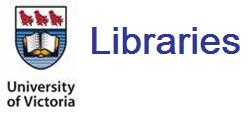The BC Research Libraries Group is proud to co-present
Open for Collaboration: Is it Time for Canada to Implement a Unified Open Strategy for Higher Education?
October 22 2015, 6:30-8:30pm
Room 1430, Harbour Centre (SFU Vancouver)
515 Hastings St, Vancouver
This special event is presented in collaboration with
SFU Library, UBC Library, BCcampus, Public Knowledge Project, and COPPUL as part of Open Access Week.
The event is free and open to the public, but registration is required. To register visit: http://tiny.cc/oaweek15
Update (Oct. 16): Registration for in-person attendance is full, but you can still get on the wait list via the link above, or you can participate online via webcast: http://tiny.cc/oaweeklive
A link to the recorded version of this event will be provided here as soon as it is available.
Embedded within the vision of post-secondary institutions across British Columbia are the values of contributing to knowledge across disciplines and sharing the results of research with the local and global communities.
Spurred by the need to make higher education accessible to all, the open movement has gained ground as the Internet evolved to enable easy sharing of different forms of media. However, while the notion of “open” in higher education has been growing in British Columbia, the default scholarly approach is still closed.
It is time for the scholarly conversation to shift from “why open”, to “why not open”?
This event will feature discussion about collaboration within the open movement and role of openness in higher education in British Columbia and examine:
- if and why BC’s universities and colleges should embrace open practices
- what impact open access and the reuse of educational materials would have on the cost and efficacy of higher education
- what role the governments of Canada and British Columbia should play in opening higher education
About the Speakers:
Dr. John Willinksy
Director of the Public Knowledge Project, Khosla Family Professor of Education and Director of the Program in Science, Technology, and Society at Stanford University, Professor in Publishing Studies at Simon Fraser University, and Distinguished Scholar in Residence at the SFU Library
John started PKP in 1998 at the University of British Columbia in an effort to create greater public and global access to research and scholarship through the use of new publishing technologies. He is the author of, among other books, Empire of Words: The Reign of the OED (Princeton, 1994); Learning to Divide the World: Education at Empire’s End (Minnesota, 1998); Technologies of Knowing(Beacon 2000); and The Access Principle: The Case for Open Access to Research and Scholarship (MIT Press, 2006).
Dr. Juan Pablo Alperin – Juan Pablo is an instructor in Publishing Studies, with research interests in scholarly publishing, and a collaborator on the Public Knowledge Project at Simon Fraser University. He is currently involved in several research initiatives aimed at improving the quality, impact, and reach of scholarly publishing in Latin American, and has published numerous articles and edited two books on the subject.
David Ascher – David Ascher is VP of Product for the Mozilla Foundation, and lives in Vancouver, Canada. He’s been working with Mozilla technology since 1999, and is interested in building systems that let new audiences create on the web by providing access to easy to use and engaging authoring experiences on the web.
Inba Kehoe – Inba Kehoe is responsible for Copyright and Scholarly Communications (including publishing) at the University of Victoria. She graduated with an MLS from the University of Toronto in 1993, and has a BA in English and History. She is currently working on a PhD on open scholarship.
Clint Lalonde – Clint Lalonde is an educational technologist and an advocate for the use of open educational resources and open education practices in higher education. Clint has worked in the British Columbia post-secondary system for 20 years, and is currently the Manager of Open Education at BCcampus where he is a project lead on the BC Open Textbook project, working towards providing post-secondary faculty & students with free and openly licensed remixable textbooks.
Dr. Rosemary (Rosie) J. Redfield – Rosie is well trained (PhD from Stanford, post-docs at Harvard and Johns Hopkins), though not always well behaved. Since 2006 she’s been writing openly about her day-to-day research on her RRResearch blog, whose tagline reads “Not your typical science blog, but an ‘open science’ research blog. Watch me fumbling my way towards understanding how and why bacteria take up DNA, and getting distracted by other cool questions.” In 2011 she achieved her 15 minutes of fame by critiquing (on RRResearch) the NASA-sponsored paper claiming that bacteria could construct DNA using arsenic instead of phosphorus, and in 2012 she led a team that showed this work to not be reproducible. Lately she’s been criticizing the current teaching of genetics, and putting her money where her mouth is by developing and teaching the Useful Genetics MOOC.





{ 2 comments… read them below or add one }
If not already known this study might be interesting: “The Max Planck Digital Library has put forward a study on the transformation of the subscription-driven system for scientific publications to an Open Access model. For the first time, quantitative parameters are presented showing that the liberation of scholarly literature is possible at no extra costs.”
Here the link: https://www.mpg.de/9202262/area-wide-transition-open-access